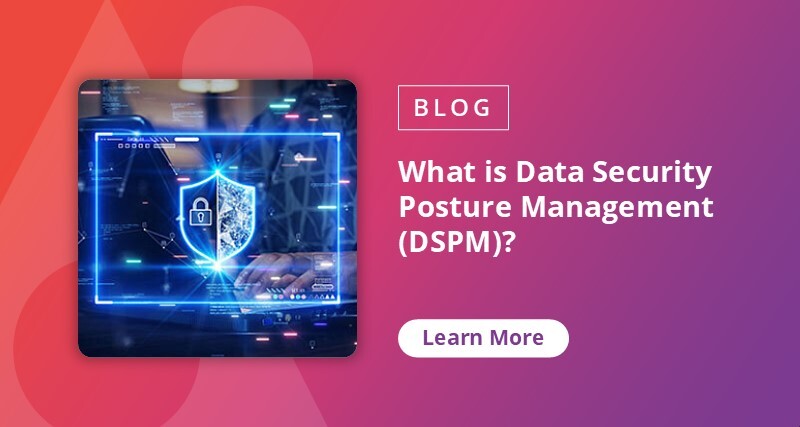The workplace is undergoing a profound transformation, powered by artificial intelligence (AI) innovations embedded in everyday tools. Platforms like Google Workspace, now integrated with Google’s next-generation AI, Gemini, are revolutionizing how teams collaborate, automate tasks, and extract insights. This AI-driven productivity surge offers tremendous opportunity, but it also brings new challenges.
To harness AI responsibly and securely, organizations must first establish a strong, secure data foundation. Without it, the promise of AI can quickly unravel into risks of data breaches, compliance failures, and unreliable outputs.
The Role of Gemini in Google Workspace
Gemini is Google’s cutting-edge AI integrated directly into Google Workspace applications such as Gmail, Docs, Sheets, Meet, and more. Gemini's capabilities are expansive: from smart suggestions and automated email summarization to document generation and workflow optimization. For example, Gemini can draft emails, generate presentations from simple outlines, provide instant data insights in Sheets, and create real-time meeting summaries with to-do lists. This seamless integration means users no longer need separate add-ons — Gemini’s AI features come embedded in their daily tools, enhancing productivity effortlessly.
Gemini accesses organizational data within Google Workspace, leveraging documents, emails, chats, and files to provide contextually relevant assistance. However, the value of Gemini’s AI is only as good as the data it learns from and interacts with. If the underlying data is disorganized, irrelevant, or unsecure, the AI’s outputs will suffer in accuracy and reliability. Moreover, improper data handling can expose sensitive information, undermining trust and compliance.
To overcome these challenges, organizations are adopting unified solutions that offer real-time visibility into data security posture, enabling swift identification of risks and proactive mitigation to keep AI insights reliable and secure.

Why Data Foundations Matter for AI Security and Accuracy
AI’s effectiveness hinges on trust — trust that the data it uses is accurate, secure, and compliant. Clean, well-governed data ensures that Gemini can generate reliable insights and helpful suggestions. Conversely, data riddled with outdated or trivial information leads to flawed AI outputs, which can misinform decisions or disrupt workflows.
Security is paramount. Improperly secured data expands the threat surface for data compromise, increasing the risk of breaches and leaks. For instance, if AI accesses data without proper permissions or if sharing settings are misconfigured, sensitive information could be inadvertently exposed through AI-generated content or summaries.
Compliance adds another layer of complexity. Regulations such as the GDPR in Europe or HIPAA in the U.S. impose strict rules on how data must be handled, stored, and accessed. AI systems like Gemini must operate within these legal boundaries to avoid costly fines and reputational damage. Google addresses this by equipping Gemini with enterprise-grade controls, including SOC 1/2/3 reports and certifications like ISO 27001, 27017, 27018, and 42001, to support compliance.
However, organizations must still assess whether their underlying data environments align with these regulations. That means going beyond what Gemini offers — ensuring robust permissions management, secure data storage, effective protection measures, and clear classification. Google's capabilities are a strong foundation, but complementary tools are essential to closing the compliance gap and operationalizing governance at scale.
Key Elements of a Strong Data Foundation in Google Workspace
Building a more secure, scalable data foundation involves several critical components:
Data Classification & Governance: Organizations must know what data they have, where it resides, and its sensitivity level. Proper classification enables targeted protection and governance policies, ensuring that sensitive data receives the highest level of security.
Access Control & Permissions Management: Implementing least-privilege access reduces risk by ensuring users and AI systems only access data necessary for their roles. Google Workspace’s permission settings and Gemini’s adherence to these controls help enforce this principle.
Backup & Recovery: Data integrity and availability are vital. Regular backups and disaster recovery plans safeguard against data loss from accidental deletion, ransomware, or system failures, ensuring AI systems always have reliable data to work with.
Data Residency & Sovereignty: Managing where data is stored and processed is essential to comply with local laws and regulations. Google Workspace offers data residency options, and organizations must align their AI usage accordingly to respect sovereignty requirements.
To manage growing data risks, many organizations also use centralized dashboards that unify security, compliance, and risk monitoring. Such platforms enable faster detection and response to vulnerabilities while maintaining continuous compliance.
Real-World Implications: AI Without Data Discipline
Without disciplined data management, AI can cause serious problems. Imagine Gemini suggesting sensitive internal content in an email or document to the wrong audience because sharing permissions were misconfigured. Such incidents can lead to data leaks and loss of trust.
Similarly, AI surfacing regulated data without proper controls can result in compliance violations and hefty fines. For example, if patient health information protected under HIPAA is inadvertently exposed or mishandled by AI-generated outputs, organizations face legal and financial consequences.
These scenarios highlight why a strong data foundation is not just a technical necessity but a strategic imperative for AI adoption.
How AvePoint Helps Build a More Secure, Scalable Data Foundation
AvePoint offers comprehensive solutions to help organizations secure and govern their Google Workspace environments, creating a reliable foundation for AI:
Visibility and Governance: AvePoint’s tools provide deep insights into data location, classification, and sharing settings across Google Workspace. This visibility enables proactive governance and risk mitigation.
Automation of Compliance and Data Lifecycle Policies: AvePoint automates enforcement of policies around data retention, classification, and access, reducing human error and ensuring continuous compliance with regulations such as GDPR and HIPAA.
Backup and Disaster Recovery: Tailored backup solutions protect data integrity and availability, ensuring AI systems always have trustworthy data to operate on and enabling rapid recovery from incidents.
By partnering with AvePoint, organizations can confidently embrace AI-driven innovation while maintaining control over their data security and compliance posture.
The integration of Gemini into Google Workspace heralds a new era of productivity and collaboration. However, unlocking its full potential requires more than just enabling AI features — it demands a strong, secure data foundation. Organizations that invest in disciplined data governance, robust security controls, and compliance automation will not only mitigate risks but also empower their teams to innovate with confidence.
Curious to learn how secure AI could work in your Google Workspace environment?
Take a 30-minute walkthrough of AvePoint’s upcoming solutions for Gemini. See how we’re approaching data security, compliance automation, and governance, so you’re ready to drive trusted, AI-powered productivity as new capabilities roll out.


